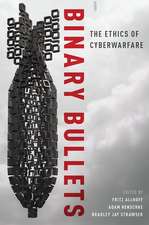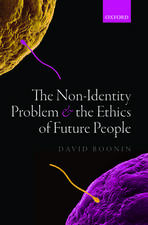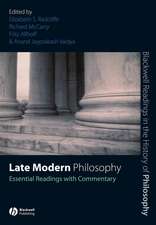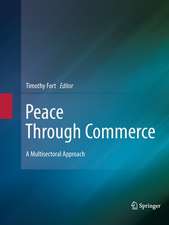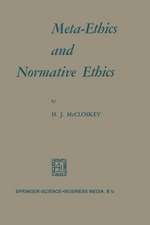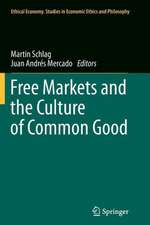Physicians at War: The Dual-Loyalties Challenge: International Library of Ethics, Law, and the New Medicine, cartea 41
Editat de Fritz Allhoffen Limba Engleză Hardback – 3 apr 2008
| Toate formatele și edițiile | Preț | Express |
|---|---|---|
| Paperback (1) | 889.75 lei 6-8 săpt. | |
| SPRINGER NETHERLANDS – 30 noi 2010 | 889.75 lei 6-8 săpt. | |
| Hardback (1) | 895.76 lei 6-8 săpt. | |
| SPRINGER NETHERLANDS – 3 apr 2008 | 895.76 lei 6-8 săpt. |
Din seria International Library of Ethics, Law, and the New Medicine
- 5%
 Preț: 347.30 lei
Preț: 347.30 lei -
 Preț: 397.26 lei
Preț: 397.26 lei - 15%
 Preț: 635.31 lei
Preț: 635.31 lei - 18%
 Preț: 942.76 lei
Preț: 942.76 lei - 5%
 Preț: 718.65 lei
Preț: 718.65 lei - 15%
 Preț: 634.68 lei
Preț: 634.68 lei - 15%
 Preț: 637.78 lei
Preț: 637.78 lei -
 Preț: 380.07 lei
Preț: 380.07 lei - 18%
 Preț: 959.98 lei
Preț: 959.98 lei - 15%
 Preț: 641.20 lei
Preț: 641.20 lei - 18%
 Preț: 944.19 lei
Preț: 944.19 lei - 15%
 Preț: 636.80 lei
Preț: 636.80 lei - 15%
 Preț: 643.00 lei
Preț: 643.00 lei - 18%
 Preț: 952.89 lei
Preț: 952.89 lei - 15%
 Preț: 643.48 lei
Preț: 643.48 lei - 18%
 Preț: 954.45 lei
Preț: 954.45 lei - 5%
 Preț: 1095.73 lei
Preț: 1095.73 lei - 15%
 Preț: 645.79 lei
Preț: 645.79 lei - 18%
 Preț: 1111.22 lei
Preț: 1111.22 lei - 15%
 Preț: 643.84 lei
Preț: 643.84 lei - 18%
 Preț: 1227.67 lei
Preț: 1227.67 lei - 18%
 Preț: 953.65 lei
Preț: 953.65 lei - 15%
 Preț: 638.57 lei
Preț: 638.57 lei - 5%
 Preț: 1101.21 lei
Preț: 1101.21 lei
Preț: 895.76 lei
Preț vechi: 1092.39 lei
-18% Nou
Puncte Express: 1344
Preț estimativ în valută:
171.43€ • 178.31$ • 141.52£
171.43€ • 178.31$ • 141.52£
Carte tipărită la comandă
Livrare economică 15-29 aprilie
Preluare comenzi: 021 569.72.76
Specificații
ISBN-13: 9781402069116
ISBN-10: 1402069111
Pagini: 274
Ilustrații: XII, 274 p.
Dimensiuni: 155 x 235 x 18 mm
Greutate: 0.58 kg
Ediția:2008
Editura: SPRINGER NETHERLANDS
Colecția Springer
Seria International Library of Ethics, Law, and the New Medicine
Locul publicării:Dordrecht, Netherlands
ISBN-10: 1402069111
Pagini: 274
Ilustrații: XII, 274 p.
Dimensiuni: 155 x 235 x 18 mm
Greutate: 0.58 kg
Ediția:2008
Editura: SPRINGER NETHERLANDS
Colecția Springer
Seria International Library of Ethics, Law, and the New Medicine
Locul publicării:Dordrecht, Netherlands
Public țintă
Professional/practitionerCuprins
Physicians and Dual-Loyalties.- Physicians at War: The Dual-Loyalties Challenge.- Dual-Loyalty and Human Rights in Health Professional Practice: Proposed Guidelines and Institutional Mechanisms.- Guidelines to Prevent the Malevolent Use of Physicians in War.- Dual Disloyalties: Law and Medical Ethics at Guantánamo Bay.- Toward a Framework for Military Health Ethics.- Physicians and Torture.- Physician Involvement in Hostile Interrogations.- Indecent Medicine Revisited: Considering Physician Involvement in Torture.- Torture and the Regulation of the Health Care Professions.- Physicians and Weapons Development.- Is Medicine a Pacifist Vocation or Should Doctors Help Build Bombs?.- The Case Against Doctor Involvement in Weapons Design and Development.- Armed Conflict and Value Conflict: Case Studies in Biological Weapons.- Ethics and the Dual-Use Dilemma in the Life Sciences.- Physicians on the Battlefield.- Triage Priorities and Military Physicians.- Medical Neutrality and Political Activism: Physicians' Roles in Conflict Situations.
Recenzii
From the reviews:
"Physicians at war: The dual-loyalties challenge is a collection of essays which provide philosophical, political, and legal perspectives on many of the conflicting obligations which physicians may face during times of armed conflict. … valuable for anyone who is concerned about the role and obligations of physicians in national security/defense issues. … this book has important implications for other areas of medicine were physicians find themselves called upon to use their medical skills and knowledge in service of the state." (Jason Gatliff, Journal of Bioethical Inquiry, Vol. 6, 2009)
"Physicians at war: The dual-loyalties challenge is a collection of essays which provide philosophical, political, and legal perspectives on many of the conflicting obligations which physicians may face during times of armed conflict. … valuable for anyone who is concerned about the role and obligations of physicians in national security/defense issues. … this book has important implications for other areas of medicine were physicians find themselves called upon to use their medical skills and knowledge in service of the state." (Jason Gatliff, Journal of Bioethical Inquiry, Vol. 6, 2009)
Textul de pe ultima copertă
There are a range of ethical issues that confront physicians in times of war, as well
as some of the uses of physicians during wars. This book presents a theoretical
apparatus which undergirds those debates, namely by casting physicians as
being confronted with dual-loyalties during times of war. While this theoretical
apparatus has already been developed in other contexts, it has not been specifically
brought to bear on the ethical conflicts that attain in wars. Arguably, wars thrust
physicians into ethical conflicts insofar as these wars create a tension between a
physician’s obligation to heal and an obligation to serve some other good (e.g.,
military chain of command, national security, the greater good, etc.). Alternatively,
we can debate whether this conception is appropriate. For example, one could
argue that that non-medical duties cannot attach to physicians (e.g., due to nonoverlapping
spheres of justice), thus abrogating the dual-loyalty challenge. Or else
one could argue that these medically-trained personnel do not act qua physicians
at all (but rather partisan advocates) and therefore duties that would otherwise
attach to physicians do not attach here.
In the first part of this book, these issues are debated. In the second part of
the book, the dual-loyalities frame is used to explore various substantive debates
that obtain when the military makes use of physicians. Physician involvement
in torture is a heated topic, and certainly the most visible element of the debate.
Also, however, we could use the dual-loyalties framework to explore issues in
other arenas, such as: development of chemical and biological weapons, medical
neutrality/battlefield triage, and so on. In each of these cases, the same tensions
arguably exist: physicians have duties both to their patientsand “elsewhereâ€
(which, depending on the details of the view, could be any of the above-mentioned
ends).
as some of the uses of physicians during wars. This book presents a theoretical
apparatus which undergirds those debates, namely by casting physicians as
being confronted with dual-loyalties during times of war. While this theoretical
apparatus has already been developed in other contexts, it has not been specifically
brought to bear on the ethical conflicts that attain in wars. Arguably, wars thrust
physicians into ethical conflicts insofar as these wars create a tension between a
physician’s obligation to heal and an obligation to serve some other good (e.g.,
military chain of command, national security, the greater good, etc.). Alternatively,
we can debate whether this conception is appropriate. For example, one could
argue that that non-medical duties cannot attach to physicians (e.g., due to nonoverlapping
spheres of justice), thus abrogating the dual-loyalty challenge. Or else
one could argue that these medically-trained personnel do not act qua physicians
at all (but rather partisan advocates) and therefore duties that would otherwise
attach to physicians do not attach here.
In the first part of this book, these issues are debated. In the second part of
the book, the dual-loyalities frame is used to explore various substantive debates
that obtain when the military makes use of physicians. Physician involvement
in torture is a heated topic, and certainly the most visible element of the debate.
Also, however, we could use the dual-loyalties framework to explore issues in
other arenas, such as: development of chemical and biological weapons, medical
neutrality/battlefield triage, and so on. In each of these cases, the same tensions
arguably exist: physicians have duties both to their patientsand “elsewhereâ€
(which, depending on the details of the view, could be any of the above-mentioned
ends).
Caracteristici
A topic that has thus far not been treated at book length and nowhere nearly as comprehensively Extremely timely and highly current Unique and broad basis for dealing with issues that not only impact on medical ethics, but cut across various spheres of justice in a setting defined by the multiple perspectives of medical, military and legal practice Unique in its treatment of the subject matter, which hitherto has only been done in a fragmented and isolated manner

